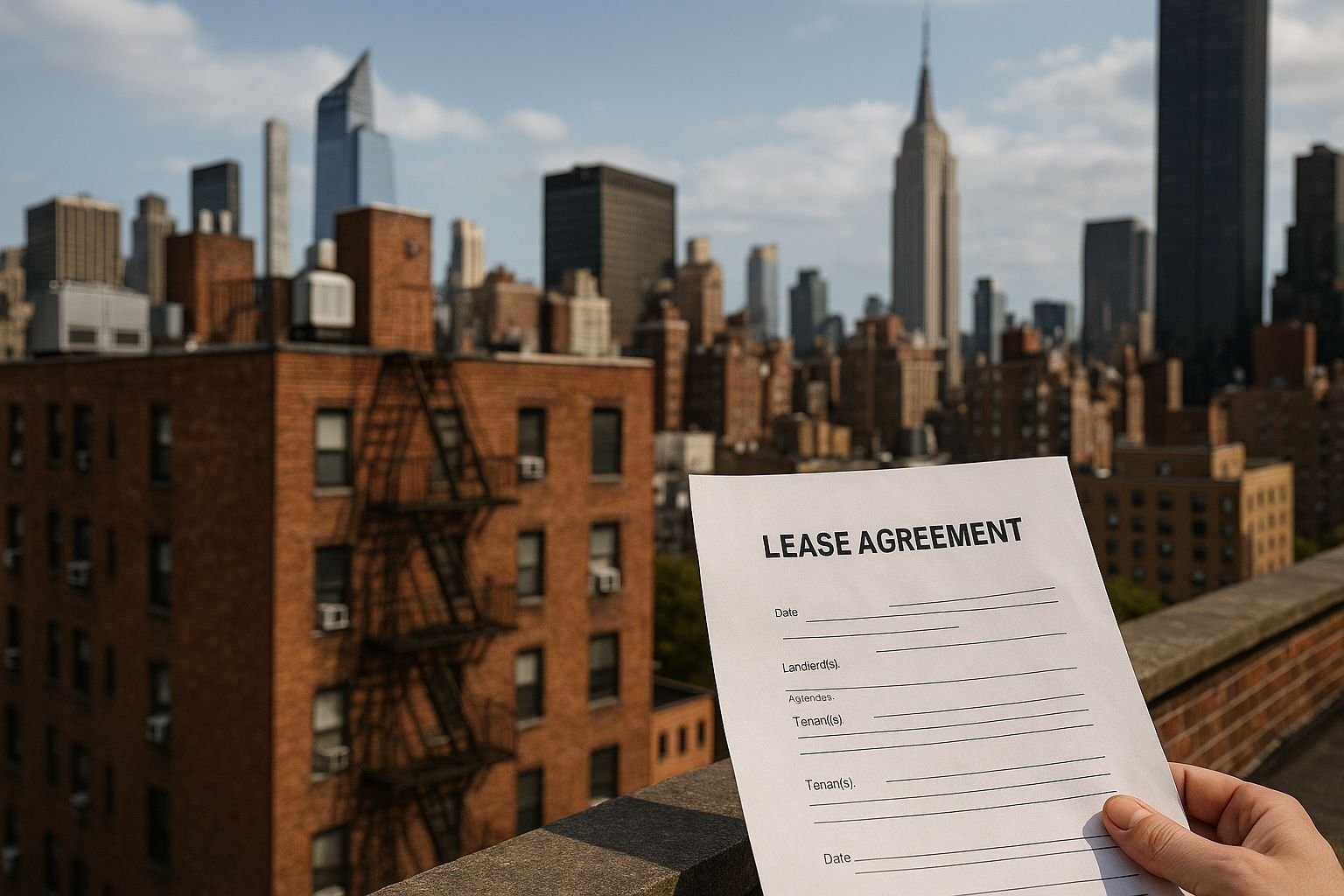How can you break the lease for your NYC apartment?
Breaking a lease in New York City is a frightening reality for most renters, but sometimes life calls for it. Maybe you're moving for a job, dealing with personal crises, or just want a change. Whatever your reason, knowing the legal and practical ways to break your NYC apartment lease can save you money, headaches, and even legal entanglements. This step-by-step guide is based on expert recommendations and the most current regulations to guide you through the process with confidence.
According to Sparkly Maid NYC, as of 2025, the average rent in New York City is approximately $3,972 per month, marking a 2.1% increase from the previous year. With rents at historic highs, making the wrong move can be costly. Let’s break down your options, rights, and best practices for ending your lease early in NYC.
Understanding Your Lease: The First Step
Before making a move, thoroughly read over your lease agreement. Most NYC leases are legal contracts, generally in effect for 12 months, though some last longer. Your lease will specify:
Lease duration and end date
Terms for early cancellation
Opt-out provisions
Subletting or lease assignment policies
Fines or charges for early termination
Look for an "early termination clause." Some leases permit you to cancel for a fee—typically one or two months’ rent—or with 30 days’ notice. If your lease doesn't include this, you'll need to negotiate or find a legal reason.
Legal Reasons to Break a Lease in NYC
New York law allows lease termination without penalty under certain conditions:
Inhabitable Conditions: If your apartment becomes unsafe or unlivable (e.g., severe mold, pest infestation, no heat), and your landlord won’t fix it, you may claim constructive eviction.
Landlord Harassment or Privacy Violations: Unauthorized entries or harassment can justify early termination.
Domestic Violence or Elder Abuse: Victims can legally break a lease with appropriate documentation, such as a police report.
Military Deployment: Active-duty military personnel may terminate leases under the Servicemembers Civil Relief Act.
Senior Living: Seniors (62+) moving into an assisted living facility may qualify for early termination.
If any apply, consult a tenant attorney to ensure proper steps are followed.
The Landlord's Duty to Mitigate Damages
Even if you're not legally exempt, NYC landlords must "mitigate damages" by trying to re-rent the apartment. You're only liable for rent until they find a new tenant.
What to do:
Provide written notice immediately.
Offer to help find a qualified replacement tenant.
Allow access for apartment showings.
If the landlord rents it quickly, your costs will be lower.
Step-by-Step Guide to Breaking Your Lease
Notify Your Landlord in Writing
State your intent to leave, reference the lease clause (if any), and ask for available options.Negotiate and Review Terms
If there's no termination clause, be ready to negotiate. Some landlords allow early exits for a fee or if you find a replacement.Find a Replacement Tenant
This is often called a lease takeover or assignment. Make sure the new tenant meets the landlord's criteria.Understand Subletting vs. Assignment
Sublet: You’re still legally responsible for the lease.
Lease Assignment: The new tenant takes over, and your obligation ends.
Document Everything
Keep records of communication, search efforts, and apartment issues.Fulfill Responsibilities Until You Leave
Continue paying rent and maintaining the apartment until you’re officially out.
Financial Consequences: What to Expect
Breaking a lease can come with costs:
Early Termination Fees: Usually 1–2 months’ rent.
Lost Security Deposit: If you breach your lease, this may be forfeited.
Rent Until Replacement Tenant Is Found: You’re not liable for the full term, only until the unit is re-rented.
Other Charges: Possible cleaning, repair, or legal fees.
With average monthly rent near $4,000, these expenses add up quickly.
Practical Tips for a Smooth Transition
Communicate early and professionally with your landlord.
Help advertise the unit (e.g., rental sites, social media).
Clean and stage your apartment—consider a one time cleaning service.
Be flexible and negotiate in good faith.
Special Cases and Professional Help
If your landlord is uncooperative, consult a tenant lawyer or NYC tenant advocacy organization. For cross-country moves, book a moving company early to manage logistics.
After the Lease Ends
Once your lease is terminated:
Get written confirmation (e.g., "surrender of lease" form).
Return keys, remotes, and any building property.
Request your deposit back—landlords must return it within 14 days.
Update your address with USPS, banks, and others.
If relocating, consider hiring a cleaning service in your new city like Austin Cleaning Service
to ease the transition.
FAQs
Can I break my lease because I don't like my apartment?
Usually not. Personal preference isn’t a legal reason.What if my landlord refuses to let me out?
You can negotiate or find a qualified replacement tenant. If they’re unreasonable, speak to an attorney.How much notice do I need to give?
Most leases require 30 days. Some long-term tenants must give 60–90 days’ notice. Check your lease.
Making a Clean Break
Breaking a lease in NYC isn't easy, but with the right information and preparation, it doesn’t have to be a nightmare. Whether you qualify for a legal exception or need to negotiate, your best tools are transparency and documentation.
Before leaving, schedule a one time cleaning to help recover your deposit. If you're starting over in a new city, look into a Green Cleaning Service to keep your next home fresh from day one.
